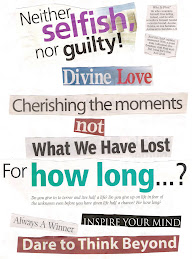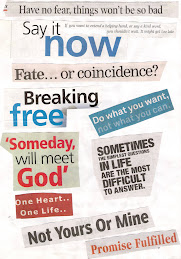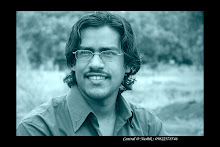
http://in.linkedin.com/in/nabarunpaul



School Education
Tertiary Education
Vocational Training & Language Learning



WHY? What am I?
What is the difference between me and a robot? It is feelings.
So what am I? Who am I? Am I a mechanised robot or a living robot?
“There is an expiry date for all. No body and nothing are indispensable. There are no guarantees to anything. Nothing lasts forever.”
All that exists has to perish and go back where it has come from. That’s the only constant. That’s nature. Everything that is created has an end and MUST have an end or it becomes monotonous and loses value. If there is no end then there is no room for the new. If we want a change then we have to change that which is now, which too was changed long back to make room for the change. There is no such thing as forever. If there is then it is death. I am yet to see one who can prove that life is forever, it is death that is forever. Thoughts change, feelings change, responses change, ideas change. The word idea can be treated as a short term for i – Dream / i- death. The death of the old and the birth of the new becomes an ‘idea’. ‘I’ has to die to give rise to the new. The ‘I’ is the ego. Let it die or better,........... kill it!
‘We change the world by changing the way we perceive the world, the way we think about cause and effect, by altering our beliefs of true and false, right and wrong’.
In this material world we believe in buying the latest. Why? Because we all want a change. We get bored with the new and again want a change. For this simple reason even the furniture re-arrangement in our house after a while makes the room look new, but then after some time that too becomes old and needs a change.
We are constantly running to achieve that ever elusive pot of gold; we fail to see it along the path. What is needed is change of the mind not material. But when one has a mind it will think and it will disallow the change as we all are soo deep rooted in our traditions which was sowed into our heads long ago by our ancestors. They too forgot that what was new to them was only a mere change from the old. Our conditioned ways of looking at things prevent us from taking the plunge or allow anybody else to take the plunge. We just do not want to let go for the fear of losing all... That reminds me a line from the poem ‘IF’ by Rudyard Kipling –
If you can make one heap of all your winnings
And risk it on one turn of pitch-and-toss,
And lose, and start again at your beginnings
And never breathe a word about your loss;……….
I can only suggest changing the way we think to change the way we live.
‘What is the theory behind what we do? Is it really what we want or intend? Or has it gone untested for so long that we no longer question it?’
For ages we have been hearing and at times even many of us must have participated in the – “Women’s Liberation” – why? because there are few who want a change. It is because those people believe – Change is the only constant.
Nelson Mandela was in prison for 27 years, that’s more than a life imprisonment…what for? What did he strive for? What was his personal gain? – CHANGE…and he did it…Gandhism is Gandhigiri now, why? - Because we all have forgotten the true ways of Gandhi hence we needed a munnabhai to teach us Gandhigiri. We needed a change to again connect with Gandhism…isn’t that a change?
In the land of opportunities that is the United States;
It took 43 presidents to rule and finally the change;
44th was the president who was not a white American.
USA who is considered as the powerful nation on earth took almost an era for a change.
For the bird in the cage it will need a lot of patience…
But change is the only constant and
Some day the cage too will disappear and;
The bird will fly again.
Possibly you & I may not last that long but the thoughts must go on;
Only then there will be change for the seeds need to be planted by someone…
‘You reap as you sow’…is a proverb…
but for a change one can only sow and hope to reap…but eventually it will definitely be reaped, that’s for sure…
Who wants a change?
Mulla Nasrudin and his wife were sitting on a bench in the park one evening just at dusk. Without knowing that they were close by, a young man and his girl friend sat down at a bench on the other side of a hedge.....
.....Almost immediately, the young man began to talk in the most loving manner imaginable.....
"He does not know we are sitting here," Mulla Nasrudin's wife whispered to her husband. "It sounds like he is going to propose to her. I think you should cough or something and warn him....
""WHY SHOULD I WARN HIM?" asked Nasrudin. "NOBODY WARNED ME."




